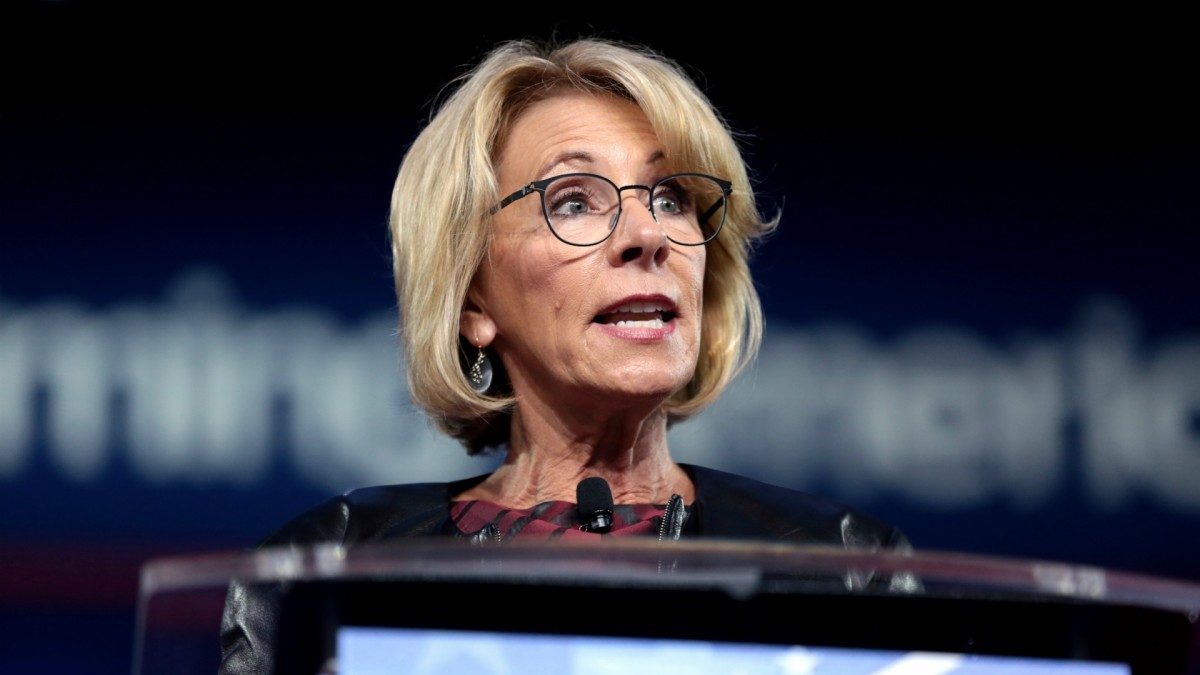Students upset, but not surprised, about changes to Title IX
Trump administration scraps Obama-era sex assault guidelines
September 22, 2017
INDIANOLA, Iowa — Students and faculty members are reacting after the Trump administration announced Friday the scrapping of Obama-era guidance in regard to sexual assault investigations.
Education Secretary Betsy DeVos promised to reshape the Title IX policy last week during a speech at George Mason University in Virginia. Making good on her promise, the interim guidelines will allow colleges to decide whether to use former President Barack Obama’s “preponderance of the evidence standards” or the “clear and convincing evidence standard.”
“This interim guidance will help schools as they work to combat sexual misconduct and will treat all students fairly,” said DeVos in a statement. “Schools must continue to confront these horrific crimes and behaviors head-on. There will be no more sweeping them under the rug. But the process also must be fair and impartial, giving everyone more confidence in its outcomes.”
Title IX is a result of 1972 legislation that aims to aid students dealing with matters of discrimination, primarily college students who have experience sexual violence.
It is unclear how these changes will be implemented, but institutions of higher education such as Simpson College might be facing those changes.
There were 42 assaults reported last year on Simpson’s campus, 17 of which regarded sexual assault, according to members of the local chapter of It’s On Us, a sexual assault awareness and prevention campaign.
“It really hurt because I knew it was going to affect students across the county who have either been sexually harassed or sexually assaulted,” said Tristan Carmen, a member of the Sexual Assault Response Advocates organization. “It just makes them feel like what happened to them doesn’t matter because the administration doesn’t seem to be supporting them.”
Carmen added that he wasn’t surprised by DeVos’ announcement, but he’s upset because the victims “might have to deal with the fact that their abuser gets off the hook.”
SARA is a support system provided by students for students. Other confidential resources on campus include the chaplain, counseling services and the campus nurse.
Carmen said he fears the change will have a harmful effect on whether victims report crimes to proper authorities.
Rich Ramos, Title IX coordinator, said his office is working on a “one policy” option, which means that the employee policy mirrors the student policy.
“It’s implied that our students live up to a certain standard,” Ramos said. “But because of the nature of sexual misconduct, we feel like we need to explicitly spell it out so there’s no question on anyone’s part of what’s OK and what’s not OK.”
While changes in the sexual misconduct policy might be changing for faculty and staff, the student policy remains the same.
“We are often so focused on the students’ experience that we forget to talk about the fact that this is a process that’s open to faculty and staff, too,” said Ellie Olson, director of counseling services and adviser to the SARA group.
There’s an expectation that as an institution, we adhere to all the directives and everything associated with Title IX, which means we have the appropriate policies in place to prevent sexual misconduct from happening on campus as much as we can,” Ramos said.
Anyone with questions regarding Title IX or sexual misconduct, contact SARA at 515-330-6392 or counseling services at 515-961-1332.





